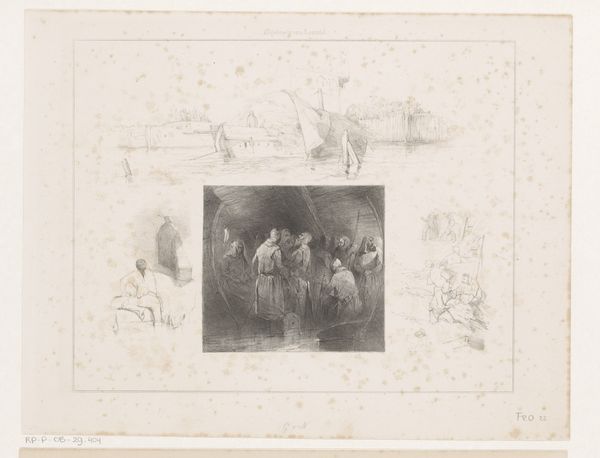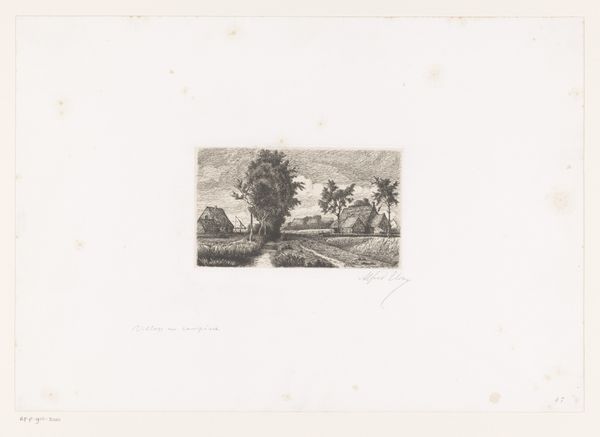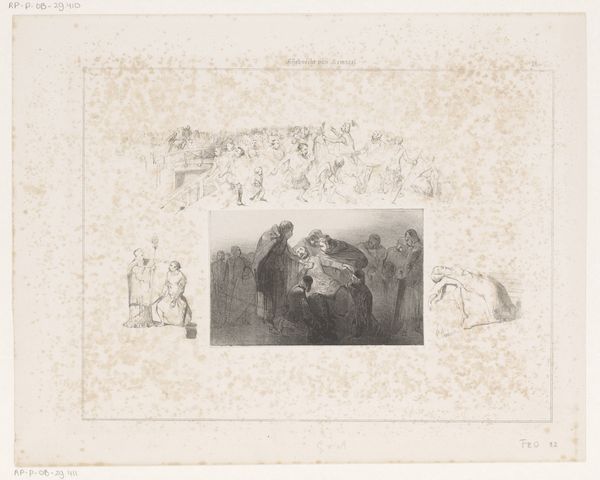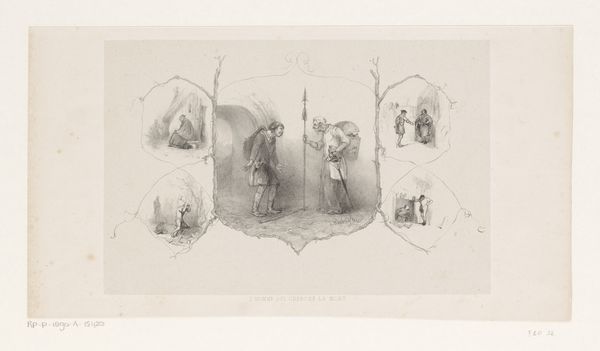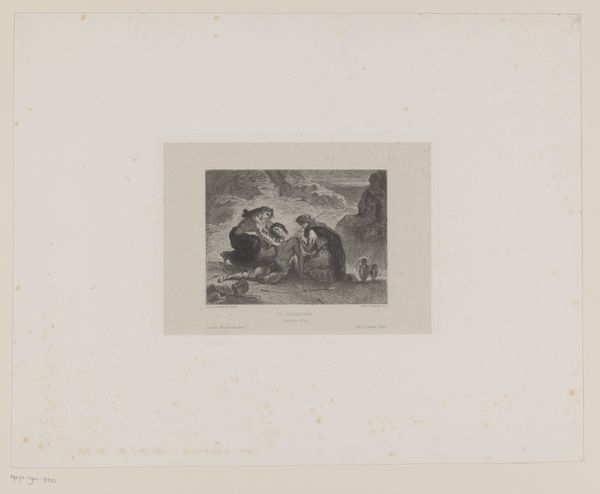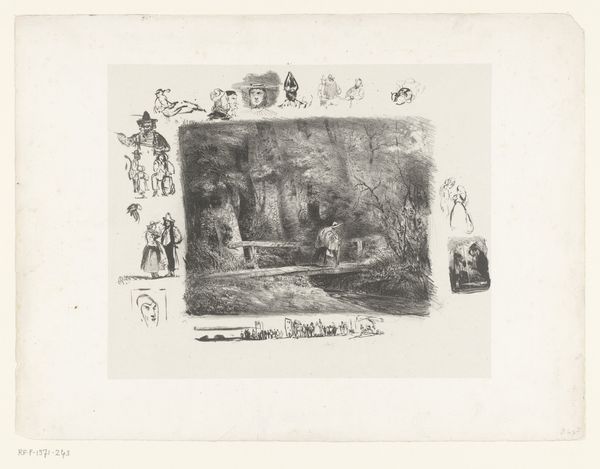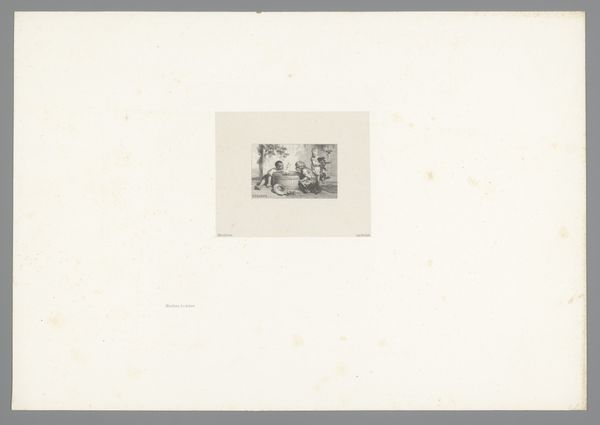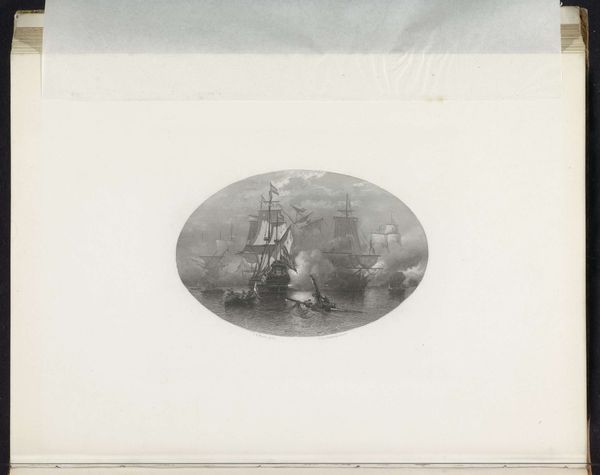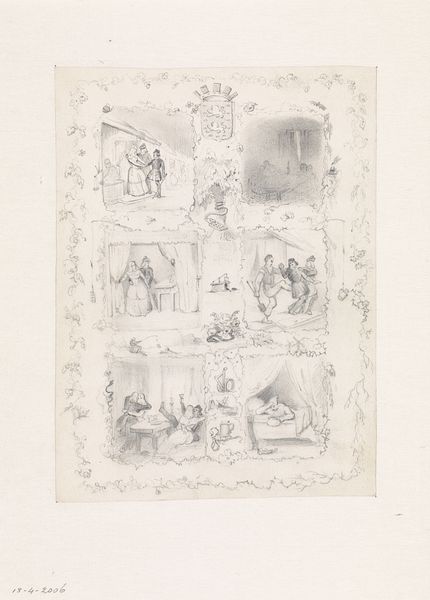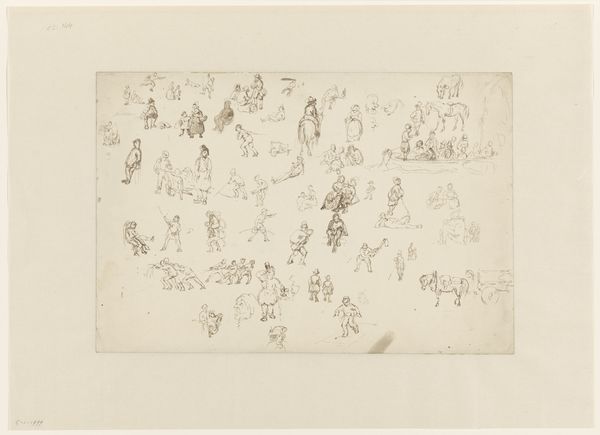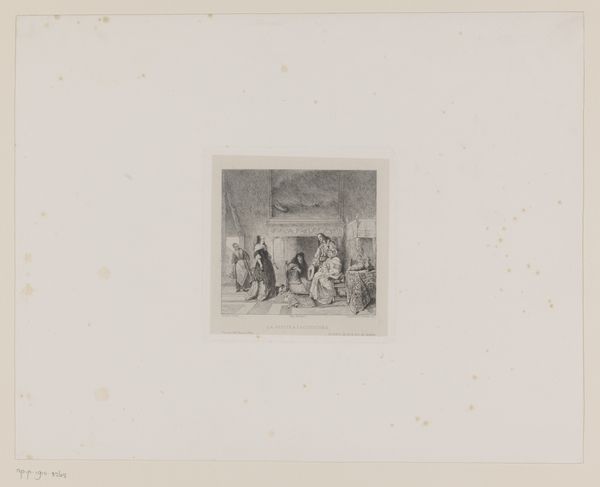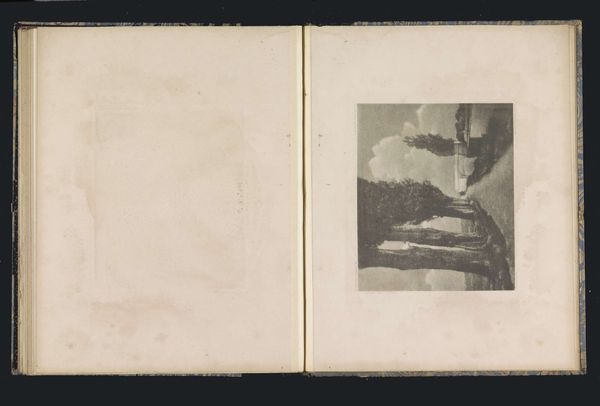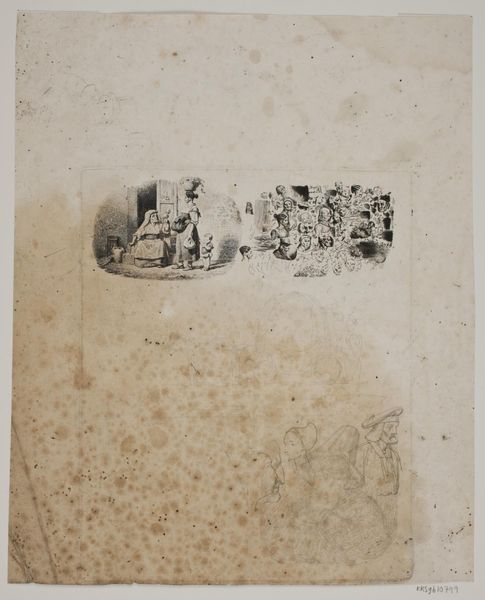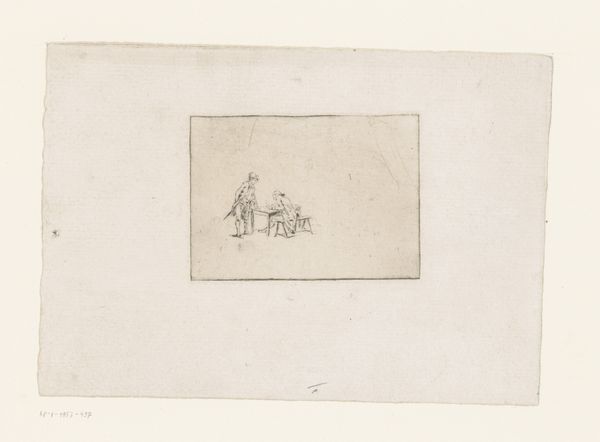
drawing, lithograph, print, paper, ink
#
portrait
#
photo of handprinted image
#
drawing
#
16_19th-century
#
lithograph
#
ink paper printed
# print
#
paper
#
ink
#
cityscape
#
genre-painting
#
realism
Dimensions: height 280 mm, width 465 mm
Copyright: Rijks Museum: Open Domain
Curator: Greetings. Editor: Hi, I’m so glad to discuss this lithograph by Carel Christiaan Antony Last, titled "Slapende student aan tafel" which translates to "Sleeping student at the table." It’s from sometime between 1842 and 1887. It strikes me as quite poignant and relatable—that feeling of being overwhelmed. What catches your eye when you look at this piece? Curator: Immediately, the composition stands out. Observe how Last orchestrates various vignettes around the central figure of the sleeping student. The student's slumped posture creates a clear focal point. Notice the textures achieved with lithography, particularly in the rendering of the clothing and the table. How do these elements contribute to the overall visual experience? Editor: Well, the grainy texture definitely emphasizes the roughness of the student’s clothes, maybe hinting at a worn-out state. And the surrounding vignettes—are those meant to be distractions or pressures? Curator: Consider the spatial relationships between the central figure and these vignettes. They seem to orbit around him, yet remain distinct. Do you see how the varying scales and perspectives create a sense of depth and disorientation? Perhaps Last is not so concerned with narrative coherence as with a visual and structural relationship between rest and activity, center and periphery? Editor: That’s an interesting way to see it - I was caught up in the idea of story, of school life - and now I see how the piece pushes beyond that. It feels less like a slice of life, and more of an interesting and deliberate placement of shapes, textures, and forms to convey a mood. Curator: Precisely. Focusing on the intrinsic pictorial components and structural elements leads us beyond conventional narrative readings, prompting deeper engagement with its semiotic potential. Editor: I definitely understand the value of looking at it that way; thank you! Curator: A valuable insight, indeed.
Comments
No comments
Be the first to comment and join the conversation on the ultimate creative platform.
